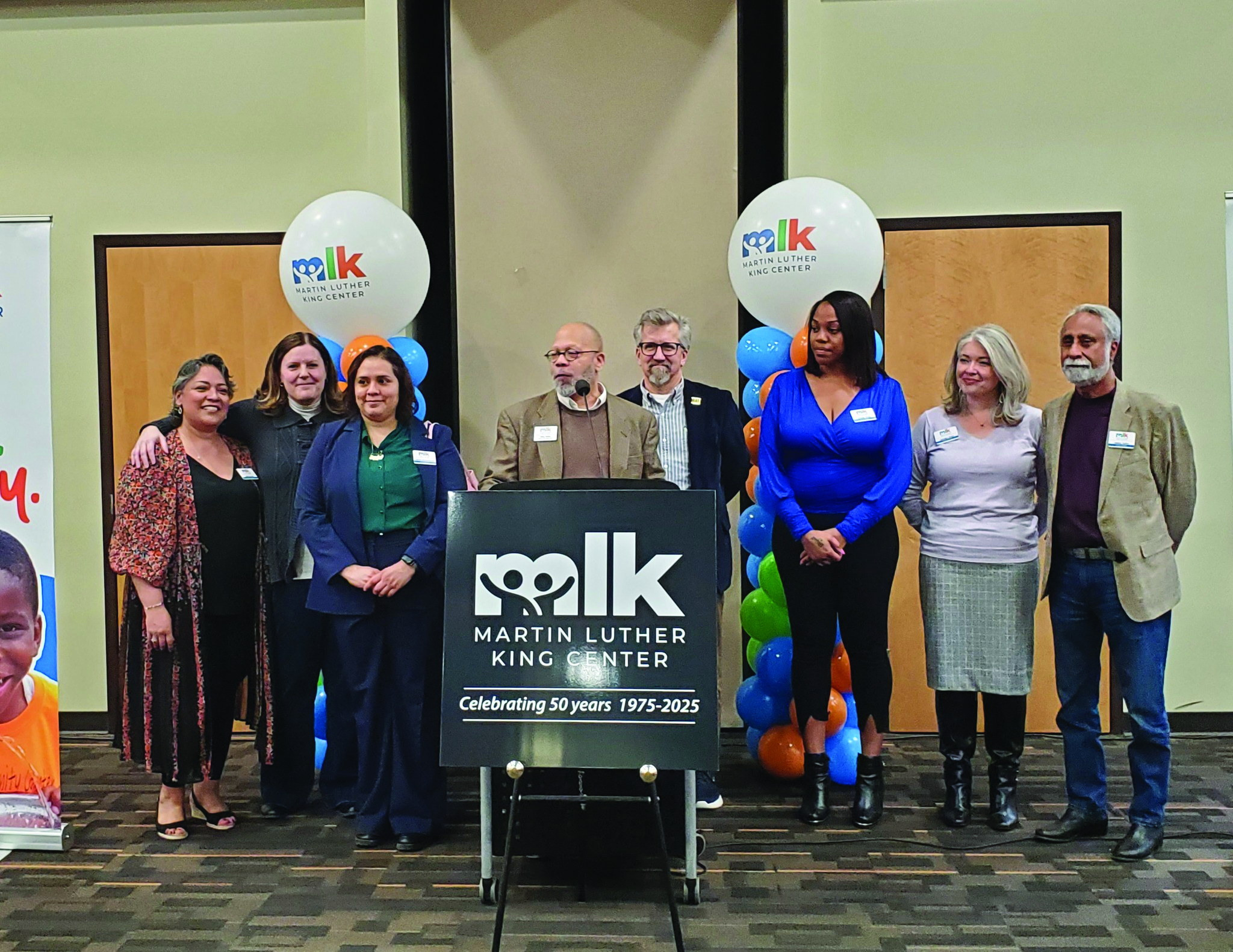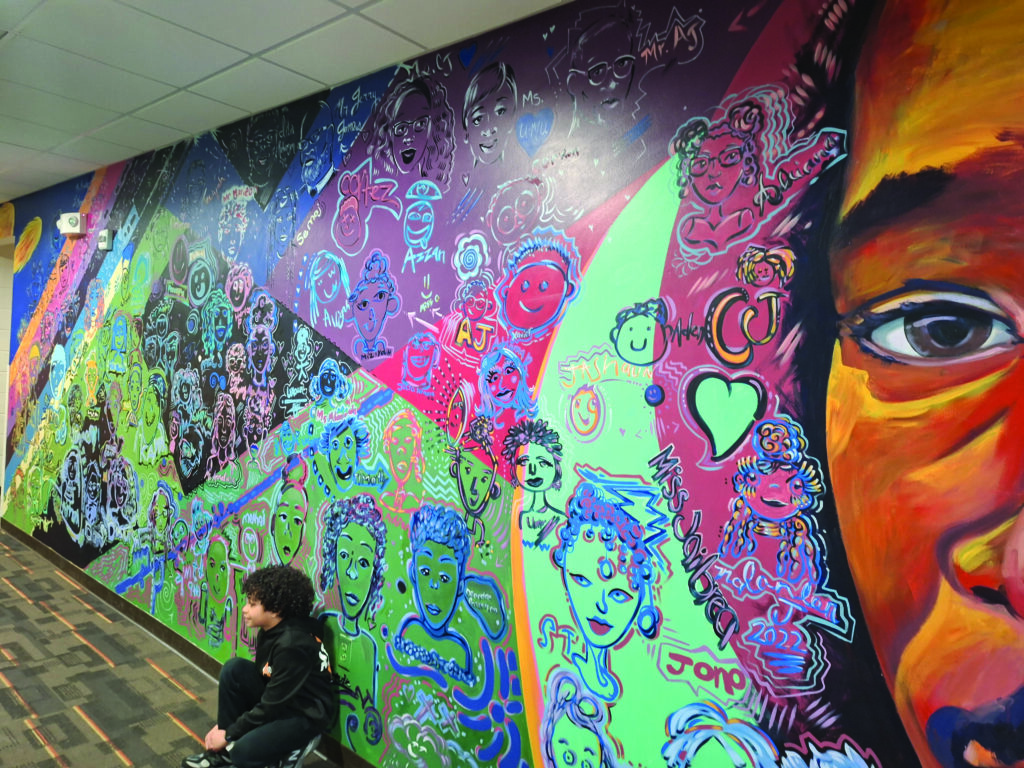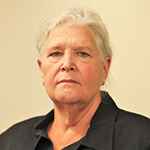When the Martin Luther King Jr. Community Center opened its doors for the first time on March 22, 1975, some Rock Islanders feared it wouldn’t last long.
Half a century later, that city is celebrating this cornerstone and pillar of a historic West End neighborhood that has launched generations of community and business leaders.
Many of those MLK Center alums and leaders have joined in a 50th Anniversary year celebration that has included a March 21 open house and a celebratory video which can be viewed on the MLK Center’s website.
Rather than rest on its laurels in this milestone year, the leaders of the ever-evolving and growing center and its community and business partners are showing no signs of slowing down. For example, they are seeking to grow even more new community leaders through yet another groundbreaking idea: An innovative West End Revitalization initiative that has been making strides since its initial launch in 2022 read more about it here.
MLK Center Executive Director Jerry Jones told the QCBJ that the center itself is unique in the region because it serves an entire community and is focused on a diverse population, while offering a wide variety of activities and experiences.
In the early days, the center provided legal aid services, youth recreation, a branch library and community meeting spaces. Longtime staffer and volunteer Ida Robinson said in the anniversary video the initial goal was to create the area’s first drop-in center where kids could “come and do recreation to get them off the streets.”
That early mission has evolved to what it is today: “To inspire greatness in the Quad Cities through education, service and community building.”
Rooted in Great Society
Although the King Center opened in 1975, it can trace its roots to President Lyndon Johnson’s Model Cities program. That federal initiative was designed to combat urban poverty and revitalize declining city areas. It was a key component of the president’s Great Society initiative.

its Golden Anniversary. CREDIT MARTIN LUTHER KING JR. COMMUNITY CENTER
“It was huge,” Mr. Jones recalled of the impact it made when cities, including Rock Island, joined Model Cities to help focus on transportation, child care, health care and education.
“One aspect of that was the King Center becoming a one-stop-shop for human services needs in the community, located in the community,” he said. “And what I think was really visionary and very important is that this wasn’t the city staff saying ‘OK, this is what we need.’ This was citizen stakeholders coming together to work together.”
They began by forming a committee to talk about what needed to happen in the West End. It was led by M.L. Lockhart, an executive at Deere & Co., the Moline-based manufacturing company that continues to make critical contributions to the center today.
Janet Lockhart-Johnson, the late Mr. Lockhart’s daughter, said in the MLK anniversary video that because of her father’s interest and work with the Model Cities program, “John Deere actually loaned him to the city and they paid his salary while he did things for the city.”
She called the King Center itself “a dream that materialized through the efforts of many people in the Quad Cities.” That included her father who went on to become the center’s first executive director.
Sustainability essential
Not only did the organizing committee Mr. Lockhart led work with city staff “to come up with this concept of the King Center,” Mr. Jones said, “what was even more visionary is that the focus was on ‘OK, how do we sustain this?’ And that’s where the city came in.”
The MLK Center began as a sub-department of Rock Island’s human resources department and its nonprofit status became official in 1977. But it “wasn’t until around 1985 that then Mayor Mark Schwiebert made the center its own department,” Mr. Jones said.
The change was designed to ensure the center would continue to have “the right talent and infrastructure for sustainability,” he added.
Rock Island Mayor Mike Thoms is a longtime supporter of the center, including participating in the capital campaign that led to its last major renovation. As a citizen he also contributes financially because “I really believe in a lot of the things they’re doing and have done.”
He added “They’ve had great leadership and they do a great job of meeting people’s needs, staying grounded and not getting that mission creep you can get sometimes. They’ve done a great job of staying true to their mission.”
That includes through family advocacy and programs for young West Enders. “They do a great job of engaging and building self esteem for the youth and giving them a place to be. It’s just wonderful to see,” the mayor said.
Rock Island’s contributions to the center’s success also are considerable. “You’ve got the leverage of City Hall, someone to do the background stuff, the payroll, the HR, etc.,” Mr. Thoms said. Center staff also can take advantage of the knowledge of the city’s professional staff for such things as marketing, planning, reducing construction project costs and providing snow removal. Those relationships also ensure more of what the community members invest in the MLK Center goes to those served by the center, he said.
“Sometimes you put a dollar into an organization, and you wonder how much of it goes to the mission and how much goes to administrative overhead,” Mr. Thoms said. At the MLK Center, he added, “The majority of your investment goes to the mission versus administrative and being partners with the city has helped that dramatically.”
As those services have grown, so by necessity has staff. Mr. Jones came to the Quad Cities from the Chicagoland area to attend Rock Island’s Augustana College, where he met his future wife. They elected to make their home in the Quad Cities. After Mr. Jones worked with other Quad Cities organizations, he joined the MLK Center’s then team of four as its youth program manager. Today the ever-evolving center is served by a busy staff of 18 full-time employees.
A lesson well learned
The critical need to maintain adequate staffing to do what needs to be done was a lesson that Mr. Jones said he had to learn the hard way. And his advice to other nonprofit leaders is this: “Build your infrastructure, build administrative capacity.”
He added “You need to have people thinking, planning and managing the work moving forward, and I didn’t do a good job of that in the beginning. No. And now that we have it, we are accelerating our pace exponentially compared to the past.”
That still relatively modest-sized staff is critical to allowing the center to serve its mission as a one-stop-shop for one of the most economically distressed areas in Rock Island.
Its annual overall reach is significant. Leaders estimate the center touches some 20,000 people each year. Among them are the 7,000 or so recipients of the free Thanksgiving Day meals its volunteers distribute annually, those served through family advocacy and youth prevention programs, and youth in after-school and summer day camps as well as such events as the annual Soul of the City Festival (formerly Family Fun Day) and the Dr. Martin Luther King Service & Awards. This year’s event featured a compelling presentation and a call to action by the Little Rock Nine’s Minnijean Brown-Trickey.
The center’s Ida Robinson Banquet Room – named for the beloved former staffer and still very active volunteer – also is available for community use. Then there are the large number of people who simply drop in to get the help they desperately need.
The building also features recent impactful additions including bright murals and classrooms and up-to-date technology such as new STEAM Lab complete with two 3-D printers, thanks in part to the generosity of MLK Center patron Heidi Huiskamp Collins. A pair of recent visits to the MLK complex by the QCBJ also revealed progress on a long-awaited re-siding project.
With his 23 years of service at the MLK Center, Mr. Jones is one of its longest-serving employees. But he can’t top the 39-year tenure of Carlos Jimenez, manager of the center’s prevention services.

“It’s a tough job and Carlos is special,” Mr. Jones said. He’s currently part of a team of four who reach 2,000 teens each year teaching classes in Rock Island schools that include helping kids make healthy decisions as well as classes on substance abuse and teenage pregnancy prevention.
Initially, he did that job alone, Mr. Jones said, “but we were able to add infrastructure to that, and so now we’re able to reach more kids, but more importantly, with more quality of service.”
Preserving history
Mr. Jimenez’s and Mr. Jones’ long experience and that of other longtime employees and volunteers also came in handy as this year’s golden anniversary approached and leaders discovered that much of that rich history had never been written down.
“I thought there would be a paper trail a mile long … and there’s nothing really there,” Mr. Jones said. “So over time, we’re losing the institutional knowledge.” As a result, center leaders are working to gather and preserve those stories for future generations with the help of two Western Illinois University Quad Cities Museum Studies graduate student iterns.
Also as the center celebrates five decades of service, Mr. Jones said he is grateful that it and the work it does have become so well known in Rock Island and beyond. That deep community connection was apparent when its leaders decided to hold MLK’s free Thanksgiving Dinner event during the global pandemic.
“When COVID hit, that’s when I thought, ‘Oh, we’re going to see a major drop in the service,'” Mr. Jones said. Leaders also worried they would not have enough volunteers. Instead, those seeking dinners and others who wanted to volunteer came out in droves.
The Thanksgiving program is one of the things that have helped to make the Martin Luther King Jr. Center a household name in the Quad Cities.
“Our brand has expanded without question,” Mr. Jones said.








